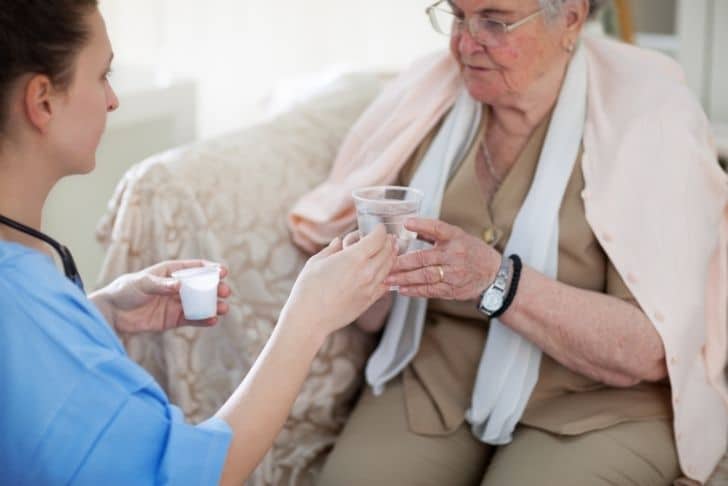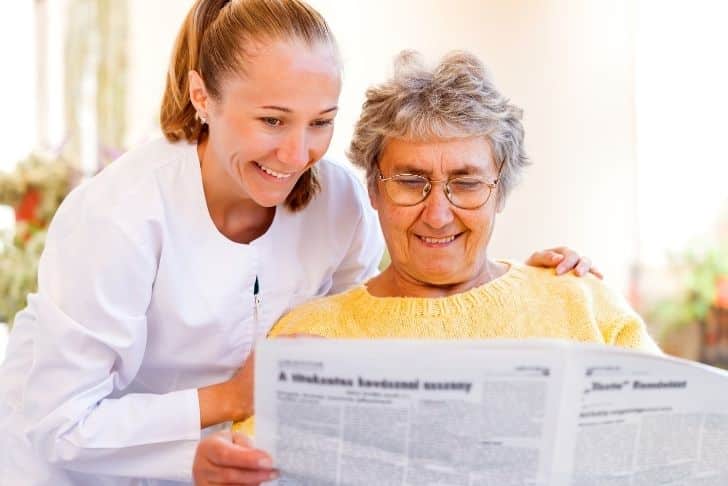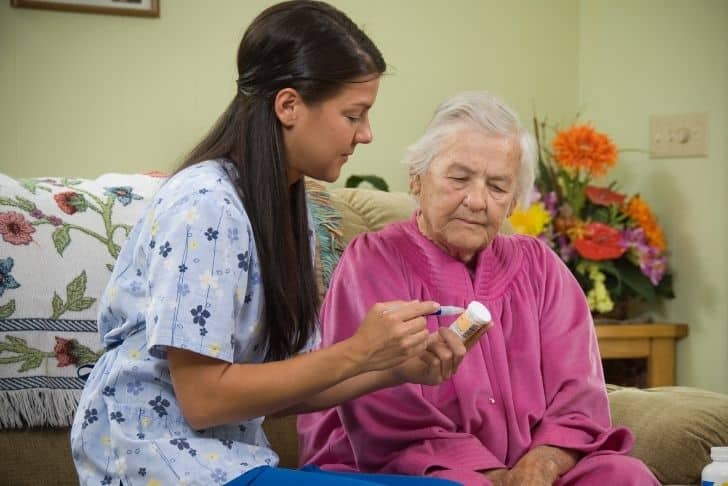Managing your senior loved one’s medication can be overwhelming, but with a bit of planning and some handy tips, it is possible to organize a system that works for both of you. This article provides a wealth of knowledge from Clare Absher, a Registered Nurse with 44 years of experience. Absher shares a range of practical strategies and methods to not only ensure correct medication organization but also to help the elderly remember to take their medicines. These strategies include making use of highly visible areas to place medications, associating medicine intake with daily activities, making detailed lists of all medications, and employing technologies such as automatic pill dispensers or smart phone apps. The suggestions offered cater to a wide range of individuals making it possible to find a method that fits your unique situation. Absher’s expertise gives invaluable insights into these vital aspects of elderly care.
Understanding the Importance of Medication Management for Seniors
The necessity of meticulous organization
Embedding proactive medication management starts with meticulous organization. As you age, you may be prescribed an array of drugs further multiplied by the numbers of health conditions you might face. From blood thinners, antihypertensives to statins – this growing assortment calls for systematic organization. Ensuring that all prescriptions and over-the-counter medicines, dietary supplements and vitamins are accounted for is important for avoiding any dangerous interactions and possible contraindications.
The impact of medication errors
Medication mistakes may lead to a diverse array of complications, from minor discomfort to potentially life-threatening conditions. Among these concerns might be an unexpected drug interaction, a worsened health condition, or an unplanned hospitalization. Unwanted side effects or complications might dramatically affect a senior’s quality of life and overall well being. Therefore, eliminating avoidable medication errors should remain a priority.
The importance of correct dosages and frequencies
Each medication requires accurate dosages at specific intervals. Some drugs are taken daily, others more frequently, or even prn (‘as needed’). The timing of the medications, the dosages, and the specificity – whether they should be taken with food, for instance, or at a particular time of the day, may have a direct impact on the medication’s effectiveness and safety.
The need for practical and easy-to-follow routine
Invoking a plausible approach to medication compliance is crucial. This involves implanting an arrangement that your elderly loved one can adhere to for good compliance. The regimen itself needs to be practical, clear, and easy to follow. The routine should never be overwhelming, too complicated or overly ambitious.
Successful and Practical Organizational Tips for Medication Management
The respective approach should suit an individual senior
Managing medications is a personalized task. The aging process is unique to each individual, and so is managing medication. What benefits one senior might not be ideal for another. Expectation to waiver between practices until you settle on what works best for your loved one should be perceived as part of the process.
Understanding it may take a few trials to find the best practice
Viewing failures as part of this journey is crucial. No approach is definitive right away, rather, it could take a few trials and adjustments to establish what works best. It’s okay to adapt and refine the system until you’ve found the most efficient method.
Avoidance of keeping medications out of sight
Out of sight, out of mind! Never keep medications hidden in a drawer or a cabinet, but place them prominently to remind seniors to take their medications on time. Establish them somewhere nearby popular spots—places that seniors frequent—to ease the process of remembering to take their medications.
Benefit of associating medication intake with daily activities
Making medication administration a part of their daily routine could significantly simplify the process. Seniors might link medication intake with routine activities, such as brushing their teeth, having a meal, or getting dressed. This technique could trigger a memory that it’s time to take their medications.
Importance of maintaining a visible, up-to-date list of all medications
Keeping a prominently displayed and up-to-date list of all medications, dosages, frequencies and specific instructions will help seniors monitor their medication regimen. The list can be kept anywhere in a highly sighted living area, acting as a constant reminder for them.

The Role of Technology in Medication Organization and Reminder
Effective use of automatic pill dispensers
Automatic pill dispensers that send out alarms multiple times per day could be invaluable. These devices proffer a signal when medications are due. They can be locked and filled in with the weekly or monthly supply in advance, reducing the risk of double-dosing or missing a dose.
Advantages of medication reminder apps on smartphones and tablets
Numerous medications reminder apps could help seniors manage their pills accordingly. Although this requires seniors to be tech-savvy and to have a smartphone or tablet handy all the time, this could be a handy approach for some.
Usage of traditional timers or alarm clocks
Although it may seem outmoded in comparison with the latest technologies, traditional timers or alarm clocks can still function as effective tools. Standard kitchen timers or alarm clocks could be manually set to ring when it’s time to take medication.
Emergency calls feature of certain dispensers
Pill dispensers equipped with an emergency call feature offer an added layer of safety. If the alarm is not turned off after a certain period, indicating that the medication hasn’t been taken, the dispenser can automatically call a family member or caregiver.
Hiring Professional Assistance for Managing Medication
The benefits of employing Certified Nurse Aide (CNA) or Home Health Aide (HHA)
Hiring a CNA or HHA could improve medication adherence greatly. Having an extra pair of hands to oversee and prompt medication intake during the day, as well as to observe and report any potential drug interaction or side effects, provides an added safety net.
The responsibility of professional caregivers to remind and monitor medication intake
Professional caregivers have the vital duty of reminding seniors when it’s time to take their medication. They also monitor that these instructions are being accurately followed. Their systematic vigilance, understanding, and first-hand experience with medication management can make a meaningful impact.
The possibility for caregivers to manage prescription refills
Resourceful caregivers can also deal with prescription refills and ensure that seniors never run out of their medications. This extra benefit confers assurance to both seniors and their families, and underscores the value of professional help when dealing with medication management complexities.

Tips for Organizing Seniors’ Medications
Use of prefilled individual medication cups
Utilizing prefilled individual medication cups offers a great strategy to cope with a diverse assortment of pills. These containers should be noticeably labeled with dates and times, allocated to specific locations your loved one frequently visits.
Importance of clear and correct labelling of medication containers
Specific labels on each medication container, including the name of the drug, dose, and time of the day to be taken, could decrease confusion and increase adherence. This strategy could be especially useful for seniors who may struggle reading small fonts on prescription bottles.
Advantage of keeping a written record of medication intake
Keeping a written record of medication consumption can afford a detailed retrospect into your loved one’s medication routine. Maintaining a calendar, binder, or chart where seniors or their caregivers can mark an “X” could be an additional reinforcing tool to medication compliance.
Separating ‘as needed’ medications from daily ones
Differentiating routine medications from occasional, ‘as needed’ ones remains an important step in promoting clarity and preventing confusion or possible mix-ups. It can be helpful to group ‘as needed’ medications separately and label them accurately, specifying the purpose of each.
Effective Storage and Display Methods for Medication
Usage of multi-level pantry racks or transparent shoe holders
To increase readability, medications could be stored on multi-level pantry racks or placed in transparent shoe holders. Organizing the medications in mini plastic storage drawers allows easy identification and prevents them from being lost or mixed.
Grouping similar medications together for easy identification
Grouping similar medicines on the same row or bin simplifies the process of locating the correct medication for various illnesses. It could save time and limit confusion.
Keeping ‘as needed’ medications separately for better clarity
Creating a separate, clearly labeled section for ‘as needed’ medications avoids the potential error of taking them without actual need. The clarity in their purpose and assigned space could further augment the adherence to correct intake of the medications.

Improving Readability of Medication Labels
Making labels clear and visible with large fonts
Amplifying the labels on medication bottles makes it easier for seniors to read. Detailed labels, prominently displayed in large fonts, address the difficulty some seniors might have in reading small prints on conventional prescription bottles.
Differentiating medications with color-coded bottles based on their purposes
Differentiating medications based on their purpose could be done through color-coding. For instance, red bottles could be used for heart or blood pressure meds, and blue could be designated for cold or allergy medications. This coding simplifies identification and reinforces the purpose for each medication.
Considerations for Traveling with Medications
Choosing appropriate containers for medication transportation
Selecting an appropriate container ensures medications are well stored while your loved one is on the move. Anything durable and portable, like a sturdy metal lunch box, a plastic tackle box, or even a cosmetic bag, could be employed to carry their pills securely.
Packing medications correctly for trips or doctor appointments
The manner in which you pack medications for trips should not just keep the meds safe, but also preserve the organization of these medications, ensuring that the right pills can be easily found and taken as scheduled.
Utilizing Pill Boxes for Medication Organization
Choosing the right size and type of pill box
Selecting a pill organizer that suits your loved one’s needs is vital. Pill boxes come in all shapes and sizes. While some seniors might require a simple organizer with boxes for each day of the week, others might have to opt for larger organizers to handle multiple dosages at different times of the day.
Organizing medications based on the days of the week and frequencies
Arranging the meds per day of the week and time (morning, noon, evening, bedtime) could make medication management simpler and more practical. It will save time and limit any confusion that may occur with unaided administration.
Keeping in mind that an empty compartment can serve as a reminder
An empty compartment in a pill organizer indicates that the dosage for that slot has been taken. This could serve as a valuable reminder for seniors and offers a safety measure against repeat dosing within a short time interval.
The Role of Caregivers in Managing Medications
Understanding and respecting an elderly person’s medication preferences and needs
Caregivers should always be aware of and respect a senior’s medication preferences and needs. They should ensure that the senior’s personal preferences are taken into account as much as the prescriber’s instructions.
Adapting practices and routines to suit aging loved ones
Adaptability in medication management practices is key. Caregivers need to modify strategies according to the unique needs and capacities of their elderly loved ones, thereby driving optimal medication compliance.
Constantly communicating with senior loved ones and healthcare providers
Open and constant communication with both senior loved ones and healthcare providers better manages any anticipated challenges. Shared dialogues contribute to better understanding and implementing correct medication regimen along with timely detection of any side effects.
Promoting compliance and safety in medication consumption
Promoting medication compliance also confers safety assurance. Repeated instructions, gentle reminders and constant checks into medication consumption can help avoid any missteps and address any potential concerns promptly.
